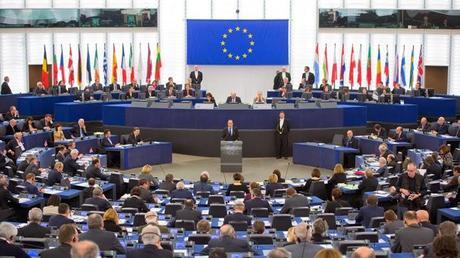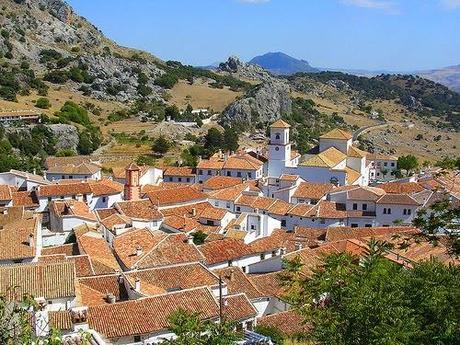

One of the great achievements of the establishment of the European Union was the beginnings of a broader transnational identity from Spain to Finland — or so it seemed for a decade or so. But is this even a coherent idea? Is it credible to imagine that the citizens of Spain, Greece, Latvia, France, and Finland would come to see themselves as fellow “Europeans” rather than Spaniards, Greeks, Latvians, Frenchmen and women, and Finns? What would be the content of such a pan-European identity? How would it come about?
One of the theorists who believed that a pan-European identity was possible was Karl Marx. His view was partial but emphatically trans-national: he believed that international working men and women could come to have a shared class identity that transcended national boundaries. But the mobilization of working class men and women into the armies of Britain, France, Italy, Germany, and Russia in 1914 provided a harsh reality check on that notion, at least in the historical circumstances of the early twentieth century. It appeared that nation and patriotic feelings trumped class and international solidarity. (Here is a very interesting collection edited by Marcello Musto, The International Workingmen's Association, that provides some of the founding documents and later discussions of Marx's version of internationalism.)
Willem Maas has given thought to this topic. Maas is the author of Creating European Citizens and Democratic Citizenship and the Free Movement of People. Maas's work focuses on an emerging consensus about rights and citizenship that transcends the various national cultures of the continent.
Since the end of the Second World War, an extensive set of supranational rights has been created in Europe. These rights extend entitlements, impose obligations, and have increasingly been designated with a term traditionally reserved for the relationship between individuals and states: citizenship. (Creating European Citizens, vii)One part of this very interesting analysis is the notion that people develop their political affinities through the concrete work of building institutions and legislation. So the simple fact that the European Parliament convenes in Strasbourg is itself a potential pathway to a growing collective identity around the civic values articulated within that institution. The establishment and enforcement of civic rights for individuals qua citizens of Europe -- including crucially the right of free movement from one country to another -- created a basis for civic bonds that could play a much larger role in precipitating a European collective identity. And the creation of transnational educational institutions -- the Erasmus project in particular -- has perhaps laid a basis for a more full movement of people and ideas across the face of Europe (link).
An Ur-text on social identities is Ben Anderson’s notion of “imagined communities” (Imagined Communities: Reflections on the Origin and Spread of Nationalism, Revised Edition). According to Anderson, national identities are made, not discovered; social and collective identities are social constructs. In order to understand the collective identities of "Basques", "socialists," or "Tennesseans", we need to identify the mechanisms and pathways through which common political ideas and cultural images are adopted by a group of people. Emmanuel Todd and others describe such a process for the case of France (link, link). And it is not incredible to imagine a social-cultural process through which a thread of “European-ness” could come to play an important role across all these national settings.
At the same time, it is striking to take note of the very great diversity that exists in local cultures and identities across the map of Europe, in terms of values, moral frameworks, personality characteristics, and social perceptions. This is true across countries; but it is also true within countries, with substantial regional, religious, and class differentiation within each country. So it is challenging to speak of a "Spanish identity" without asking, "Which region of Spain? What social class? What ethnic or national minority?" And even more challenging is the idea that there is an emerging "super-identity" that may serve to unify the political consciousness and values of the people of the continent.
What might constitute the core elements of a pan-European identity? We might think of shared beliefs and values; we might think of ideologies and political movements; and we might think of key elements of culture that transcend national boundaries. But it is clear that there is enough diversity across the face of Europe to make substantial convergence around any of these large axes very likely. Are Europeans more sympathetic to the plight of the poor? Some are -- but some are not. Are Europeans more progressive and liberal than North Americans? The resurgence of the right in Europe makes this dubious as well. Are Europeans more tolerant and accepting of others? The rise of anti-immigrant parties and movements in almost every European country makes that idea dubious as well.
Several of these considerations suggest that there are institutional and legal changes underway in Europe through the institutions of the European Union that may slowly permit a greater cultural and political integration of the people of the continent. Perhaps the very idea of "Europe" may come to play a larger role in the more specific identities that people have in the various countries of Europe -- as the idea of "Canada" serves to bring together the people of British Columbia and Nova Scotia, and the idea of "France" unifies Bretons, Alsatians, and Provençals. But it is also clear that there are cultural and political forces working against European integration that are powerful as well. So the future of the "European" in place of the Briton, the German, or the Spaniard is still in doubt.
(See an earlier discussion of an exchange of views between John Rawls and Philippe van Parijs on the topic of a European identity; link. See also this discussion of Andreas Wimmer's theory of methodological nationalism; link.)
